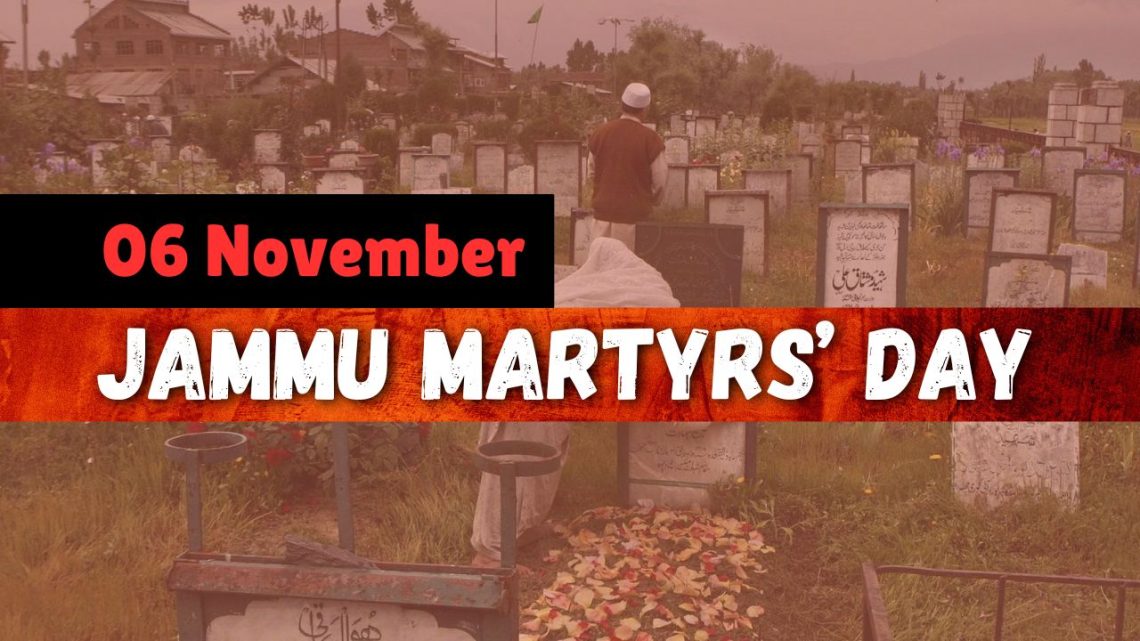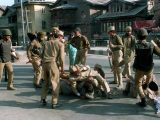
Decades After Massacre, Jammu Martyrs’ Day Reaffirms IIOJK’s Call for Justice
November 5, 2024By 06 November 1947, hundreds of thousands of Kashmiri Muslims, that refused accession to India, were killed by Dogra forces, the Indian Army, and Hindu extremist groups.
As Kashmiris ready to observe Jammu Martyrs’ Day around the world, the commemorative occasion serves as a solemn reminder of the 1947 massacre in Jammu. In early November of that year, hundreds of thousands of Kashmiri Muslims were killed by the forces of Dogra Maharaja Hari Singh, the Indian Army, and extremist groups while attempting to migrate to Pakistan. The tragic events continue to resonate today, as Kashmiris across the Line of Control reaffirm their commitment to the martyrs’ mission of achieving self-determination.
History in limelight
According to Kashmir Media Service, the massacre of over 237,000 Muslims was part of a systematic effort to alter the region’s Muslim-majority demography. Beginning in October 1947, violence erupted as Dogra forces and Hindu nationalist groups sought to quell protests against the Maharaja’s decision to accede to India. This choice contradicted the aspirations of the Muslim-majority population that had favored joining Pakistan.
By November 6, an estimated 20,000 were killed in a single day, marking an unparalleled day of loss and displacement. These events set the stage for a prolonged conflict that has since claimed countless lives and deeply affected the region.
Forced demographic alterations
The tragedy of Jammu’s massacre and subsequent policies have left lasting effects on the demography and political landscape of Jammu and Kashmir. Following the 1947 massacre, the once 60% Muslim majority in Jammu was reduced to about 33%. Since then, Indian policies have continued to reshape the region demographically and politically.
The 2019 abrogation of Article 370, which removed Jammu and Kashmir’s semi-autonomous status, has only exacerbated tensions, as the Indian government has permitted people from outside the region to settle there, further altering its social and political fabric. In tandem with military deployments aimed at curbing Kashmiri aspirations, these policies have intensified the dispute.
Diplomatic Initiatives by Pakistan
Seventy-five years after the massacre, the Kashmir conflict remains unresolved, with diplomatic channels between Pakistan and India largely blocked. The path to peaceful resolution appears challenging under India’s current Bharatiya Janata Party (BJP) government, which has used Kashmir as a focal point in nationalist campaigns. Indian Prime Minister Narendra Modi’s hardline rhetoric, including statements such as “blood and water cannot flow together,” has cast doubt on India’s commitment to dialogue and compromise.
While tensions have eased slightly in recent years through back-channel diplomacy, experts emphasize that a sustainable solution requires open dialogue and political will. Attempts have been made in the past, such as former Pakistani President Pervez Musharraf’s four-point formula, which aimed to resolve the Kashmir dispute at the 2001 Agra Summit. However, such initiatives were impeded by India’s framing of the Kashmir independence movement as terrorism.
Observing Jammu Martyrs’ Day not only honors the lives lost but underscores the importance of resolving the Kashmir conflict through diplomacy. Sustainable peace in South Asia is unlikely without addressing the Kashmiris’ right to self-determination. Leaders of both Pakistan and India must recognize their shared interests and invest in dialogue, understanding that a peaceful resolution is crucial for regional stability and prosperity.

